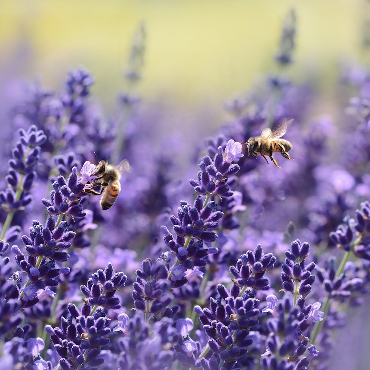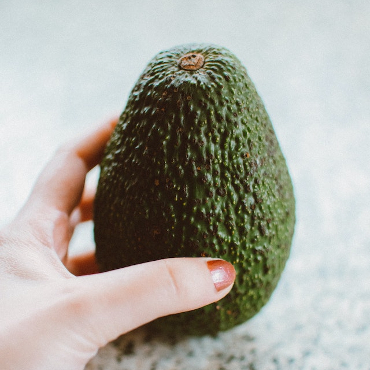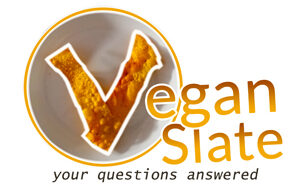I had been vegan for a few years before I became aware of the seemingly counterintuitive suggestion that there’s vegetables which are off-limits for vegans. How on Earth could some vegetables not be vegan? I mean, I devoured avocados daily in those first few years and to discover there was a question mark around my favourite vegan food sub … well, I was mortified!
Can Vegans Eat Any Vegetables?
In theory all vegetables are vegan because in nature there would be no animals harmed by the act of a lemon tree (for example) producing its fruit. So you’d think vegans can eat any vegetable, right? Well it’s not that simple of course and some vegans do avoid avocados, among other fruits and veggies. Let’s look at the why of it …
Watch: Mic The Vegan on the avocado debate …
(you can always rely on Mic for a well researched take)
Related Read: Is Opposing Migratory Beekeeping Vegan Hypocrisy?
QI 2018: Toksvig Lays Down The Vegan Law
There are probably earlier references to this curious argument but the idea really hit the mainstream when the host of British panel show QI, Sandi Toksvig, claimed that avocados, butternut squash, almonds, melon and kiwi are not vegan.

Huh?
Que the rabid, anti-vegan brigade defecating all over social media, slinging abuse at every vegan they can find. Now we’re all a bunch of hypocrites of course.
It all comes down to a practice known as migratory beekeeping … and it’s not pretty.
Vast mono-cropping operations have laid waste to our natural pollinators. Yes, it’s not only honey bees that pollinate the crops which feed the people of this world.
In fact there are over 20,000 different species of bee, let alone all the wasps, flies, butterflies, moths and even bats which naturally pollinate our crops.
… and before some crazed carnivore diet pusher cites the rise of mono-cropping as a result of all the plant based food we’re now consuming, the fact is close to 80% of this mono-cropped food production is used to feed livestock.
- 80% of the people on this planet eat meat.
- Even more people regularly consume dairy.
So who’s primarily driving the death of our natural pollinators? Avocado eating vegans?
It’s time to give yer head a wobble if that’s what you think.
Can Vegans Eat Foods Pollinated By Bees?
Vegans choose to reject meat and dairy because of the abhorrent animal cruelty which exists in these industries. The abuse is well documented.
 Taking that as a baseline, we have to eat something so we choose to eat plants. It’s no secret that some animals are killed in the production of plant foods.
Taking that as a baseline, we have to eat something so we choose to eat plants. It’s no secret that some animals are killed in the production of plant foods.
That’s unavoidable.
But to insist vegans can’t eat foods pollinated by exploited bees is utterly ridiculous and not without a large dose of disingenuity.
As I explained above, it is animal agriculture which has driven us to a point where natural pollinators have been decimated.
We wouldn’t need to use migratory pollinators if humans were predominantly plant based and we treated our food production in a more holistic fashion.
It’s way more efficient to feed the world with plants … basic maths.
So yes … I’m comfortable saying that it is perfectly consistent with the vegan philosophy to eat foods pollinated by migratory bees.
Oranges Are Not The Only (non-vegan) Fruit
Woah hold on a minute! How on Earth are oranges not vegan?

Well, in the human race’s destructive quest to exploit as many animals as we can to make our lives just a tiny bit better we even treat some of our fruits with dead animals.
Or in the case of oranges, pears, apples and even avocados, beeswax is used to coat these fruits in order to extend the shelf-life.
Most vegans reject honey and so beeswax is also a no-no.
Even some bananas are not vegan because they are sprayed with a compound called chitosan which is made from the outer skeletons of shellfish!
Here’s a list of fruits and vegetables which may not be vegan because of the animal-based coatings used to preserve them …
- Bananas
- Apples
- Pears
- Oranges
- Lemons
- Tomatoes
- Cucumbers
- Aubergine (eggplant)
- Avocados
- Kiwi Fruit
- Mango
- Cherries
- Grapefruit
This is not an exhaustive list and worse still, you might find it difficult to ascertain whether the fruit you buy at the supermarket has been coated with non-vegan compounds.
In my local supermarket the lemons are usually clearly labelled as unwaxed but as for the bananas, apples and pears … no idea!
As Far As Is Practicably Possible
We can see the almost endless intricacies of our food systems make it very difficult to guarantee that what you’re eating has not used an animal product in its journey to your plate.
 For this reason vegans have to adopt one of the fundamental tenets of the philosophy … and that is perfectly encapsulated in the Vegan Society definition of veganism:
For this reason vegans have to adopt one of the fundamental tenets of the philosophy … and that is perfectly encapsulated in the Vegan Society definition of veganism:
“Veganism is a philosophy and way of living which seeks to exclude—as far as is possible and practicable—all forms of exploitation of, and cruelty to, animals for food, clothing or any other purpose.”
To put it simply, we do the best we can in the society we live in.
Animal exploitation is so embedded in humans’ way of life that for the 3% of vegans in this world to completely avoid all products which use compounds derived from animals is next to impossible.
So vegans do what we can because it’s the very least we can do.
I choose to eat avocados but reject honey and I’m fully across the migratory bees argument.
Go ahead, use the comments below and call me a hypocrite but I will challenge you until the last breath leaves my body.
I hope this article has helped to answer your question today and has brought the issue more into focus. I’d love to know what you think so please leave your comments below – I always respond. Please also share this article far and wide using the social buttons.
Lastly, if you’d like to be alerted when we post new content here at Vegan Slate, please sign up to our post notifications and you’ll be the first to know.
Thanks so much for reading and have a peaceful day.
Rohan.
 Rohan McAvee is just another vegan blogger trying to navigate the sometimes choppy waters of veganism and plant-based living. Based in the UK, for more than a decade he has been walking the vegan walk, trying to do the right thing for the animals. He’s never really wavered or been tempted to stray from the path and now feels he’s at the point where he can offer advice to new vegans and those considering making the switch. Vegan and loving it!
Rohan McAvee is just another vegan blogger trying to navigate the sometimes choppy waters of veganism and plant-based living. Based in the UK, for more than a decade he has been walking the vegan walk, trying to do the right thing for the animals. He’s never really wavered or been tempted to stray from the path and now feels he’s at the point where he can offer advice to new vegans and those considering making the switch. Vegan and loving it!
Bees photo by Pixabay
